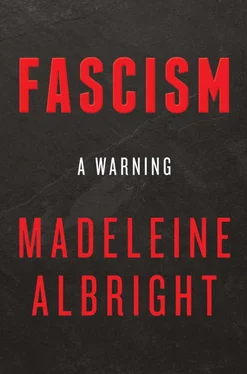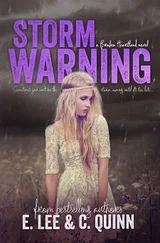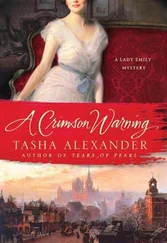The Spanish general had neither the look nor the commanding voice of a dashing military leader. He was short, pudgy, and balding, had a droopy countenance, was prone to crying, and—when issuing orders—tended to squeak. Colleagues referred to him behind his back as “Miss Canary Islands,” a comment on both his demeanor and the remote site where he was stationed when the first shots were fired; but Franco was the sort of leader who could find his way through a minefield without putting a foot wrong. Unlike many, he expected the Civil War to be long, dirty, and closely fought. In preparation, he solicited and received aid from Hitler and Mussolini.
To the irritation of both dictators, Franco resisted pressure for bold actions that, in his judgment, would have entailed taking excessive risks. Instead he waged war like a safecracker, turning the dial one click at a time. He used aerial bombardments to soften up any opposition before attacking on the ground. He paid careful attention to logistics and didn’t squander his ammunition, equipment, or men. He moved his headquarters close to the fighting and insisted that a field commander lead in retaking any territory he lost. All this he managed while ever mindful of his position on the global stage, for the Spanish Civil War (1936–1939) was of interest not solely to Spain.
For liberals in the West, the showdown between the Spanish Republic and Franco’s nationalist rebels seemed the first real chance to stop Fascism’s terrifying advance. Volunteers from fifty-four countries, including three thousand from the United States, formed international brigades to assist in the cause. The Largo Caballero government, still desperate for help, turned to Stalin, who offered men and equipment in return for a clandestine shipment of the country’s entire supply of gold. Celebrity photographers, poets, and writers—Ernest Hemingway included—hurried to chronicle and at times glamorize the competition between the forces of light, as they saw it, and darkness.
The conflict, though, was anything but romantic. It lasted four years and killed more than half a million people. There were long lulls, but the clashes were savage. Each side executed prisoners, and each cast a wide net in arresting enemy sympathizers. For Franco, the systematic rooting out of potential foes was just good strategy. One of his subordinates told allied mayors, “It is necessary to spread an atmosphere of terror. We must create an impression of mastery. Anyone who is overtly or secretly a supporter of the Popular Front must be shot.”
Spain, divided by ideology and class, was split by religion as well. Some priests opposed the nationalists, but the Roman Catholic hierarchy was clearly identified with Franco. Its officials were among the more vocal advocates of harsh measures, and a few took delight in personally gunning down “reds.” Meanwhile, the left was generally hostile to the Church and hungry to seize its land. Republican forces murdered an estimated ten thousand bishops, priests, nuns, and monks. These atrocities helped color foreign reporting and prompted most major newspapers in the United States to support Franco. When Eleanor Roosevelt urged her husband to send arms to the Spanish Republican government, he told her that if he were to do so, no Catholic would ever vote for him again.
Militarily, neither side was very potent, but Franco benefited from the failure of the Republican factions to coalesce. The Spanish left was a political battleground that encompassed Communists loyal to the party, laborers partial to the exiled Bolshevik theorist Leon Trotsky (a bitter rival of Stalin), internationalists who meant well but lacked military skills, anarchists who detested everyone including each other, and a Socialist government trying to present an attractive face to the world. While Franco was taking his time, the opposition factions were beating one another up, squabbling over supplies, and tossing some of their most committed partisans into jail. George Orwell, who went to Spain to fight Fascism, ended up getting shot by a Communist sniper and exiting the country one jump ahead of the Socialist police.
There are aspects of the Spanish Civil War that remain relevant today. The bloodshed generated controversy within neighboring countries, especially France, about whether to accept or turn back the tens of thousands of refugees who sought relief from the fighting. The Russian troops and tanks that appeared in Spain did so without markings or insignia, just as their successors would do in the 1961 Berlin crisis and, more than fifty years later, in Ukraine. [5] During the showdown in Berlin, Russian tank markings were obscured, and soldiers wore black uniforms without insignia. CBS radio correspondent Daniel Schorr dubbed them “un-tanks” and speculated, “We might one day be told that they were just Russian-speaking volunteers who bought some surplus tanks and came down on their own.”
The German bombing of Guernica, immortalized by Picasso, sparked calls for an international war crimes investigation that never took place. Instead the perpetrators first denied that any bombs had fallen, then blamed the carnage on the victims.
Franco was Spain’s youngest general and possibly its most cruel. He personally ordered the executions of thousands of alleged enemy combatants and sympathizers, without the least sign of remorse. He was deliberative, but ambitious. Even before the war had been won, he was designated the future chief of state, with full dictatorial powers. Everywhere he went, Nationalist posters proclaimed, UN ESTADO, UN PAÍS, UN JEFE—“One state, one country, one leader,” an echo of the Nazi slogan “ Ein Volk, ein Reich, ein Führer .”
The last of the Republican forces surrendered to Franco on April 1, 1939. The general vowed at the time that he would never pick up his sword again except to defend his country from invasion. When Hitler urged him to bring Spain into the wartime Axis alliance, he refused as a matter of principle, then asked how much Germany was willing to pay. He set his own terms: generous amounts of economic and military aid, plus Morocco, a possession of Vichy France. The Germans viewed the price tag as exorbitant and knew that handing Morocco to Spain would so outrage the Vichy regime that it would no longer collaborate.
To break the deadlock, Hitler traveled from Berlin to the Spanish frontier town of Hendaye, where, on October 23, 1940, he met with Franco. The chancellor was confident that his willingness to journey eleven hundred miles to visit the Spaniard in his own country would produce a breakthrough. After all, wasn’t he the master of Europe? Instead, in a nine-hour meeting, Franco evaded every request. When Hitler pressed him for a commitment, he replied with questions. Asked to moderate his demands, he repeated them. When the Führer predicted a quick victory over England, implying that Spain could wait no longer if it wanted to share in the triumph, Franco doubted the scenario before adding that, even if the Germans were to capture London, the British would keep fighting from Canada.
Barely containing his fury, Hitler had no choice but to make the long trip back home empty-handed. The following February, he tried a final time, writing to Franco, “We three men, the Duce, you, and I, are bound together by the most rigorous compulsion of history…. In such difficult times… a bold heart can save nations.” Flattery didn’t work with Franco, who politely declined the chance to link his fate to the Nazis. Writing again, this time to Mussolini, Hitler predicted that Franco—who would die in his bed at the age of seventy-five—was “making the greatest mistake of his life.”
Five
Victory of the Caesars
WHEN WORLD WAR I ENDED, THE AUSTRO-HUNGARIAN Empire was dismantled. Two-thirds of Hungary was amputated and the severed pieces were parceled out to neighboring states. For a brief time, Bolsheviks—trying to seize the moment—took power in Budapest, but they were soon routed by what remained of Hungary’s battle-weary armed forces. Throughout the interwar period, the country’s majority was trapped by poverty while many from the old upper class craved a return to the influence and wealth they had enjoyed previously. Rich and poor alike felt compelled to recover the precious lands their nation had lost.
Читать дальше
Конец ознакомительного отрывка
Купить книгу












